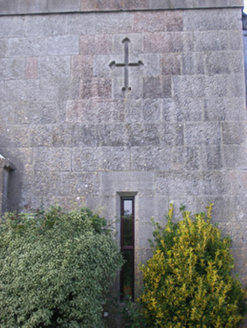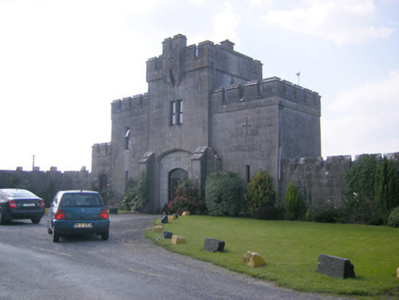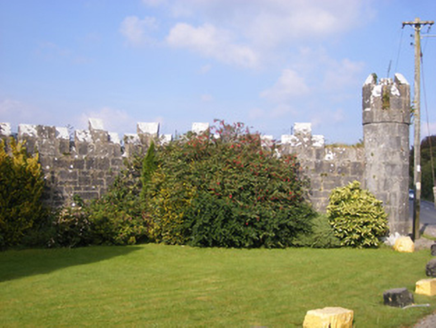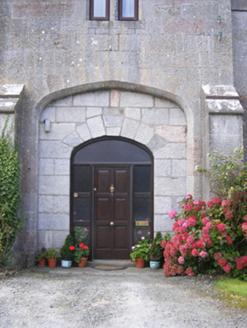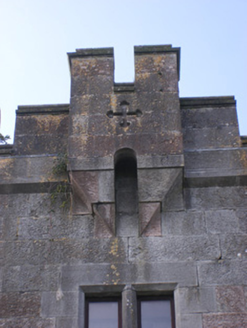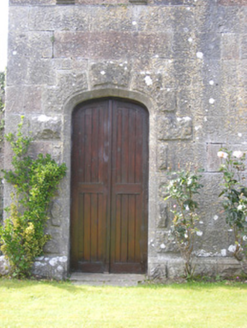Survey Data
Reg No
21901230
Rating
Regional
Categories of Special Interest
Architectural, Artistic
Original Use
Gate lodge
In Use As
House
Date
1820 - 1830
Coordinates
150753, 153481
Date Recorded
24/09/2008
Date Updated
--/--/--
Description
Detached former gate lodge, built c. 1828, comprising single-bay two-storey slightly projecting centre-bay having lower, recessed single-bay two-storey wings to north and south elevations with single-bay single-storey entrance block to south wing, south elevation. Cut limestone crenellations to roofline with rendered chimneystacks. Projecting parapet to centre-bay. Ashlar limestone walls having limestone plinth course and buttresses to centre-bay. Blind cross loops to north wing, first floor and projecting parapet. Square-headed openings with replacement uPVC windows. Bipartite square-headed openings to centre-bay first floor having limestone mullions and replacement uPVC windows. Elliptical-headed former carriage arch with cut limestone voussoirs and inset segmental-headed opening with glazed overlight over timber panelled door with flanking sidelights. Shallow pointed arch opening to south block having rusticated limestone block-and-start surround and double-leaf timber battened doors. Sweeping crenellated limestone walls to north and south terminating in pair of crenellated round-profile limestone piers.
Appraisal
This handsome and impressive former gate lodge once gave access to the country house demesne of Elm Park, an important and historical estate, once the residence of Lord Clarina. The castellated country house is now demolished. This building was formerly one of two gate lodges built by James and George Richard Pain for the Massy family. Though no longer in use as an entrance, the gate lodge stands as a reminder of an era in Irish history and as an insight into the former status of the Elm Park estate. The use of Gothic Revival details and dressings as seen in the crenellated bays and cross loop details are a tribute to the craftsmen of the past. The gate lodge adds significantly to the architectural heritage of the village of Clarina.
